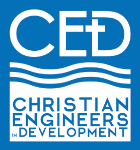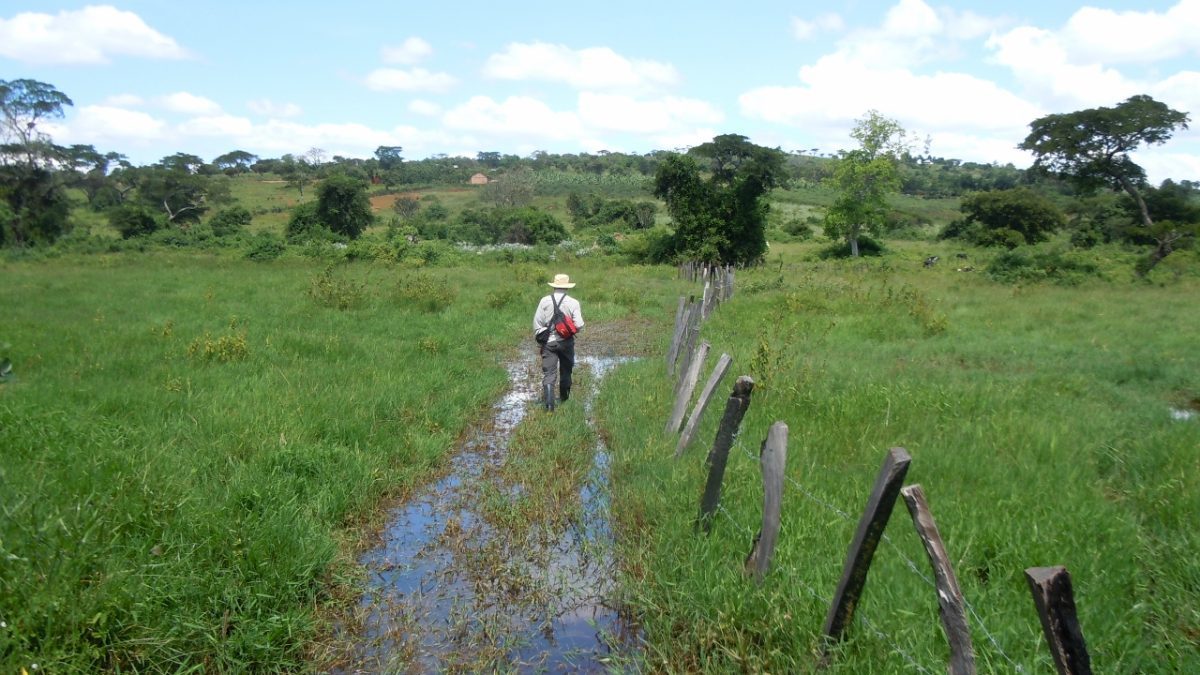Oasis Project Rwentamu, Uganda
CED has worked for some years with the Church of Uganda who maintain a list of priority locations for water and sanitation projects. Rwentamu was highlighted as a problem area for water supplies. Although there was an existing deep borehole in the village, it had high levels of mineral deposits and was unpalatable. The only feasible solution is to store surface run-off during periods of heavy rain. CED carried out a number of assessments and prepared a design for a “charco-cum-valley tank”: a type of community water supply system that has been used successfully in this area.
A large excavated water storage reservoir was built, with a small entry settlement pond. A gravel-filled chamber and pipe connects the storage well with a hand-pump for the community to use, and a cattle trough for their animals, as most of the local community are cattle farmers.
CED defined, designed, advised and oversaw the project, engaging a contractor to build the tank. A small pilot programme constructing and selling sanitation platforms for latrines was also completed. The community are involved in running the water user committee. North Ankole Diocese provided health and hygiene training. The project was completed in 2019.
Who benefitted from the scheme?
The project brought benefits to over 2,000 residents of Rwentamu, in Kinoni sub county, Kiruhura District, Uganda.
Who did CED partner with?
- Church of Uganda, Diocese of North Ankole
What did it cost and who paid for it?
The project cost £48,308, which was financed by Guernsey Overseas Aid, Wilmslow Wells for Africa, Life Trust along with top up funding from CED.

